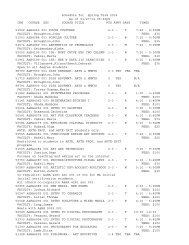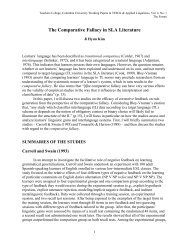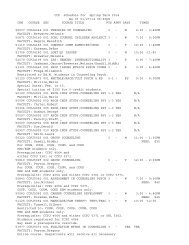UNICEF Mongolia - Teachers College Columbia University
UNICEF Mongolia - Teachers College Columbia University
UNICEF Mongolia - Teachers College Columbia University
Create successful ePaper yourself
Turn your PDF publications into a flip-book with our unique Google optimized e-Paper software.
CHAPTER 5: TOTAL PAY OF TEACHERS AND THE BONUS SYSTEM<br />
Type of bonus<br />
Olympiads &<br />
Compeons<br />
Outcomes-Based<br />
Contracts<br />
Quarterly<br />
Performance<br />
Payment<br />
Table 18: Main Features of the Three Types of Bonuses<br />
Intended purpose and<br />
frequency of award<br />
Rewards teachers<br />
who developed highperforming<br />
students in<br />
class; awarded once or<br />
twice a year.<br />
Rewards teachers on a<br />
variety of performance<br />
criteria, including overall<br />
class performance, lesson<br />
planning, communicaon<br />
skills, etc.;<br />
Awarded once a year.<br />
Reward teachers who<br />
did exceponally well<br />
(score A) or well (score B)<br />
on 4 evaluaon criteria;<br />
Awarded all 3 months.<br />
Financing<br />
source<br />
Special Fund from<br />
Central, Aimag, or<br />
Soum Budget<br />
Actual<br />
beneficiaries as<br />
% of all teachers<br />
in the study<br />
(N=123)<br />
Average<br />
rao as % of<br />
monthly base<br />
salary<br />
40.0% 5% - 50%<br />
Educaon Fund of<br />
the School 29.0% 30%<br />
Centrally<br />
Allocated<br />
Salary Fund<br />
99.2% 10-15%<br />
1<br />
2<br />
3<br />
4<br />
5<br />
6<br />
In addion, it is problemac that schools are encouraged to use funds from their School Educaon Fund<br />
for rewarding teachers. There is a tendency for the school administraons to use all their savings and<br />
generated income on themselves and the school staff, rather than on students or on buying books,<br />
supplies, and other learning materials. Earlier studies on the School Educaon Fund (also known as School<br />
Development Fund), carried out for DANIDA, showed that schools spend most of the money in that fund<br />
for the professional development of teachers, for excursions with school staff, and other acvies that<br />
benefit the educaon and support staff at the school. This pracce is reminiscent of the mes when<br />
the teacher salaries were low and unaracve and addional sources had to be used to incenvize and<br />
retain teachers. These days, however, it is not necessary to make extra payments to teachers from the<br />
School Educaon Fund. In other words, schools should not be encouraged to use the outcomes-contract<br />
award mechanism to addionally fund teachers from the School Educaon Fund.<br />
TEACHERS IN MONGOLIA: AN EMPIRICAL STUDY ON RECRUITMENT INTO TEACHING,<br />
PROFESSIONAL DEVELOPMENT, AND RETENTION OF TEACHERS<br />
87



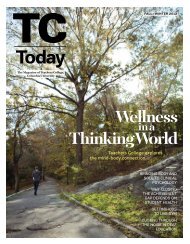
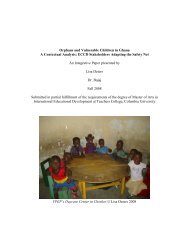
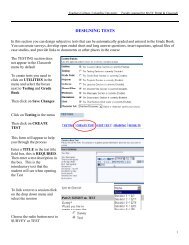
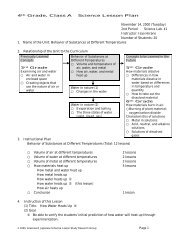
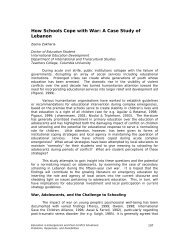

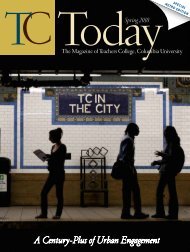
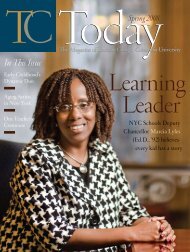
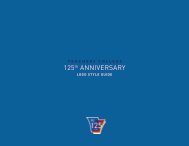

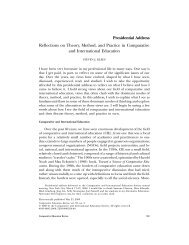
![TC Tod[...].pdf - Teachers College Columbia University](https://img.yumpu.com/27074883/1/190x252/tc-todpdf-teachers-college-columbia-university.jpg?quality=85)
